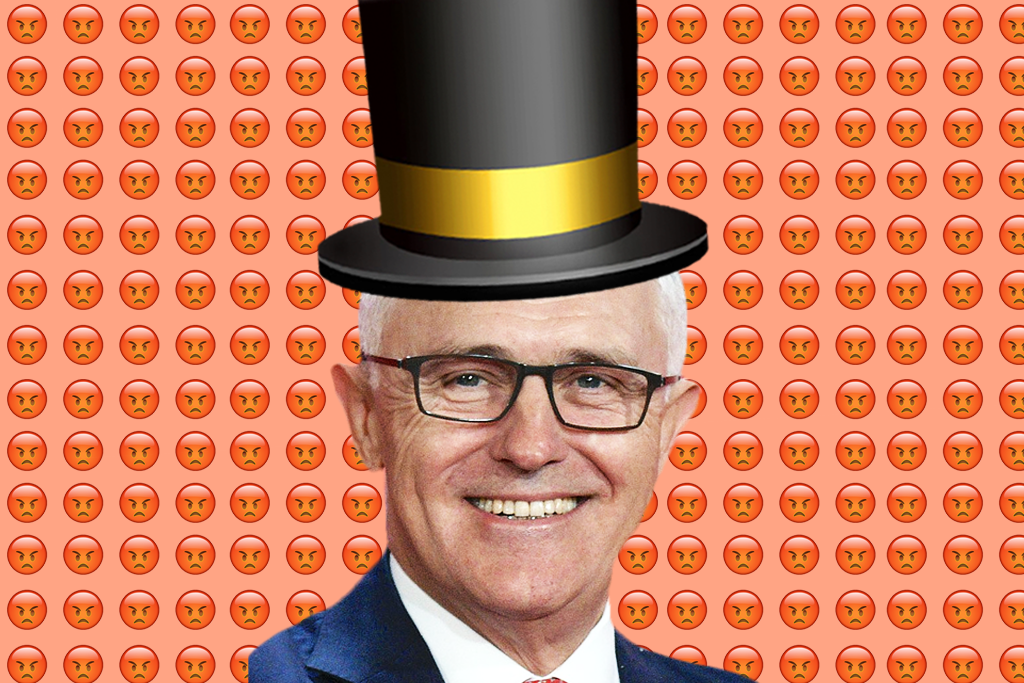Scott Morrison Is Getting An $11,000 Pay Rise Because He’s Earned It, Baby
On the same day, ordinary Australians are getting a pay cut.

July 1 is gonna be a great day for Scott Morrison — our beloved Prime Minister is getting a $11,000 pay rise, because he’s earned it!
In fact, all politicians will get a pay rise on July 1, after the independent remuneration tribunal decided yesterday that it’s time for an increase of two percent. Unfortunately for those of us without cushy jobs in Canberra, July 1 is also when the next round of penalty rate cuts for retail and hospitality workers kicks in.
In short, in 24 days’ time, ordinary Australians will be paid even less for working on weekends. Scott Morrison’s salary, meanwhile, will rise from $538,460 to $549,229.
Scomo’s not the only one celebrating. Based on the figures available here, Treasurer Josh Frydenberg currently earns around $388,312, so he’ll net a pay rise of almost $8,000. Peter Dutton, meanwhile, currently earns around $357,247 — on July 1, he’ll get a pay rise of just over $7,000.
And here’s your friendly reminder that even MPs who don’t hold fancy titles or portfolios are paid pretty damn well. The base salary for MPs is $207,100, and on July 1 it will go up to $211,242. That’s a nice $4000 pay rise for all your favourite politicians, while penalty rates continue to sink.
“The economy is tanking, wage growth is at historical lows but the Prime Minister and his Cabinet mates will rake in a sizeable pay rise on 1 July,” is how Jo-anne Schofield, the National Secretary of hospitality union United Voice put it.
“Meanwhile retail and hospitality workers are having real difficulties putting food on the table or meeting their utility and medical bills from week to week as they face yet another round of penalty rate cuts.”
Politicians are overpaid. Most work hard, but their excessive income is part of why many have no idea why that extra $20 a week matters so much to many people. Let’s go with 3 three times median income or 10 times Newstart; still a comfortable $2700 a week https://t.co/KnuXOKpcL9
— Andrew Bartlett (@AndrewBartlett) June 6, 2019
After all, penalty rates have been dropping for a few years now, while politicians’ salaries have been rising alongside them. In 2017, the Fair Work Commission decided to start cutting penalty rates annually, after businesses spent years complaining that cuts were necessary if we want them to employ more people and extend opening hours.
The cuts differ from industry to industry, but in total they’ve been pretty big — between 2017 and July 1 this year, Sunday penalty rates for full-time and part-time hospitality workers will have dropped from 175 percent to 150 percent, while rates for full-time and part-time fast food workers will have dropped from 150 percent to 125 percent. If, like the average hospitality worker, you earn a base rate of $20.91 an hour for weekday shifts, that’s the difference between earning $36 an hour and $31 an hour. It adds up.
The penalty rate cuts affect casuals and other industries, too — if you want to check how you’re affected, visit the Fair Work penalty rate change calculator here. And if that makes you feel a little angry, consider channeling that anger into an email to your local MP. After all, they’re paid more than $200,000 a year to listen to you.
$11,000 pay rise for Scott Morrison on the same day workers’ penalty rates are cut again.
How unfair is that?#auspol https://t.co/GfMKNh8t36
— Australian Unions (@unionsaustralia) 6 June 2019
